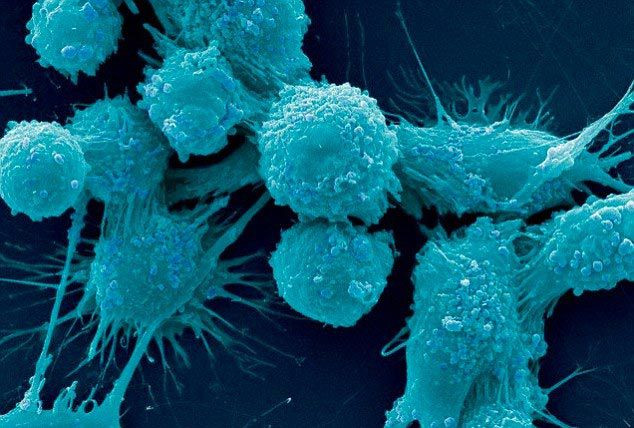Discovery of "switch" that helps cancer metastasize
LFor the first time, scientists have identified a key molecule that helps cancer spread to other parts of the body, paving the way for new cancer treatments.
 |
| The DNA-PKcs molecule has been found to play a key role in triggering cancer tumors to metastasize throughout the body. Illustration: Corbis |
Cancer is a disease that relies on cell growth. In most cases, tumors only become deadly once they have metastasized, or spread, from their original location to other parts of the body.
Researchers from Thomas Jefferson University (USA) now claim that they have discovered a single molecule that appears to be the "key factor" that promotes metastasis in prostate cancer.
"Finding a way to halt or prevent cancer metastasis has proven difficult," said study co-author Karen Knudsen, professor of urology. "We discovered that a molecule called DNA-PKcs could provide a means to shut down key growth pathways, controlling metastasis before it starts."
Metastasis is considered the final stage of cancer. The tumor undergoes a series of changes in its DNA—mutations—that make the cells more mobile, allowing them to enter the bloodstream. The cells also become more “sticky,” helping them to anchor themselves to new sites, such as the bones, lungs, liver, or brain.
The processes that lead to metastasis are complex, involving many different biochemical pathways, but new research shows that a single molecule lies at the root of many of them. That molecule is DNA-PKcs, a DNA repair kinase.
Kinases are a class of enzymes that specialize in reattaching broken or mutated DNA strands in a cancer cell, acting as glue for multiple broken pieces of DNA, thus sustaining the life of a normal cell that would otherwise self-destruct.
Previous studies have shown that DNA-PKcs is involved in treatment resistance in prostate cancer, in part because it repairs damage that often threatens tumor survival, caused by radiation and other treatments.
In the new study, Professor Knudsen and colleagues discovered that DNA-PKcs also has other, more far-reaching roles in cancer: it serves as a key orchestrator of a network that activates all metastatic processes. In particular, DNA-PKcs modulates another enzyme that allows many cancer cells to become mobile, as well as facilitating other key processes such as cell migration and invasion.
Through experiments in mice with human prostate cancer-like disease, Dr. Knudsen's team demonstrated that they could disable metastasis of malignant tumors by using factors that inhibit the production or function of DNA-PKcs. In addition, DNA-PKcs inhibitors also reduced the overall tumor size at metastatic sites.
When analyzing samples from prostate cancer patients, the team also found that increased levels of the DNA-PKcs kinase were a strong predictor of developing metastatic processes and poor treatment outcomes.
The researchers hope the new discovery will help them achieve their goal of developing a drug that can stop prostate cancer tumors from spreading. The team also hopes the discovery will eventually pave the way for new effective treatments for other types of cancer.
According to vietnamnet

.png)






